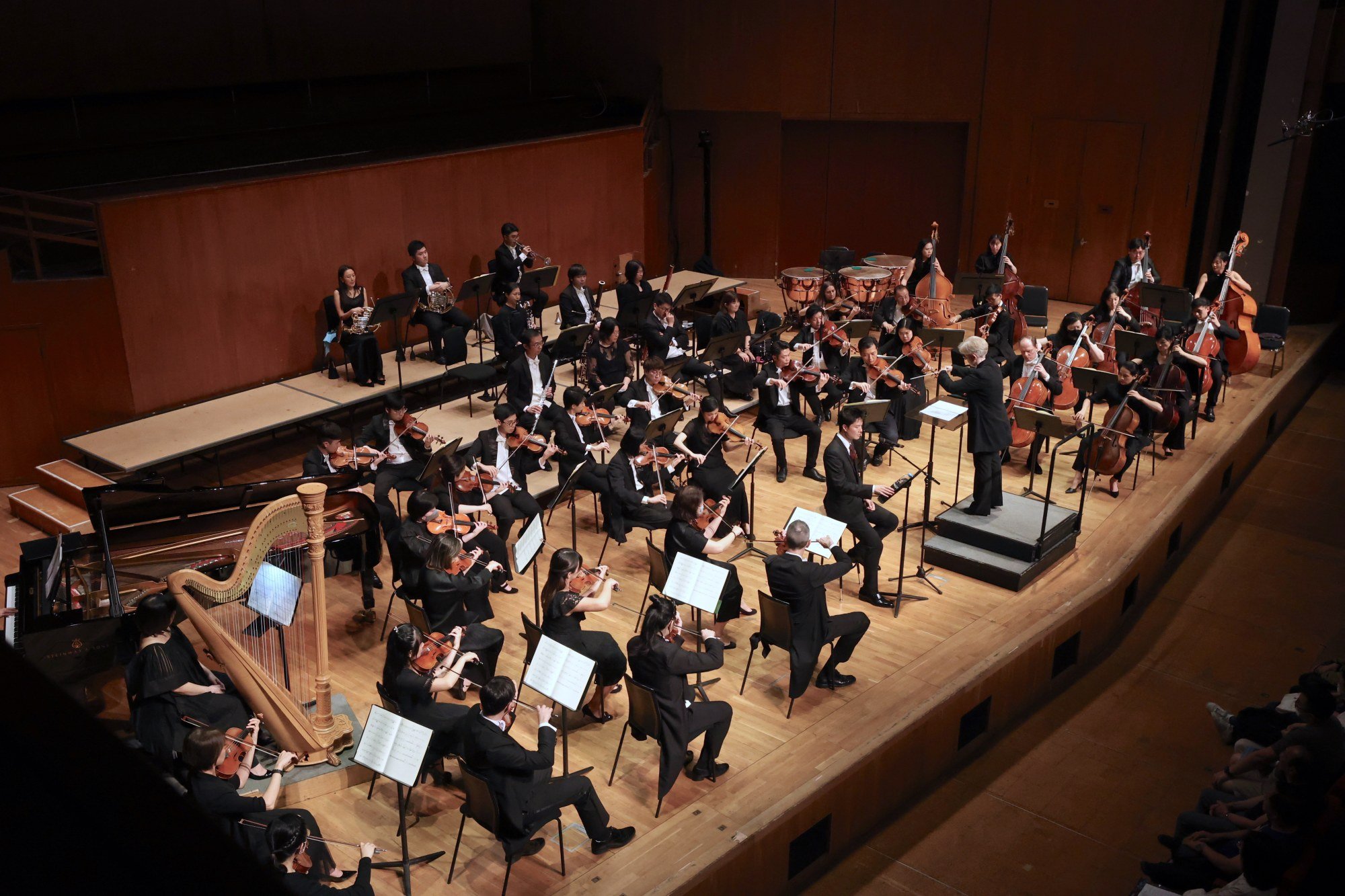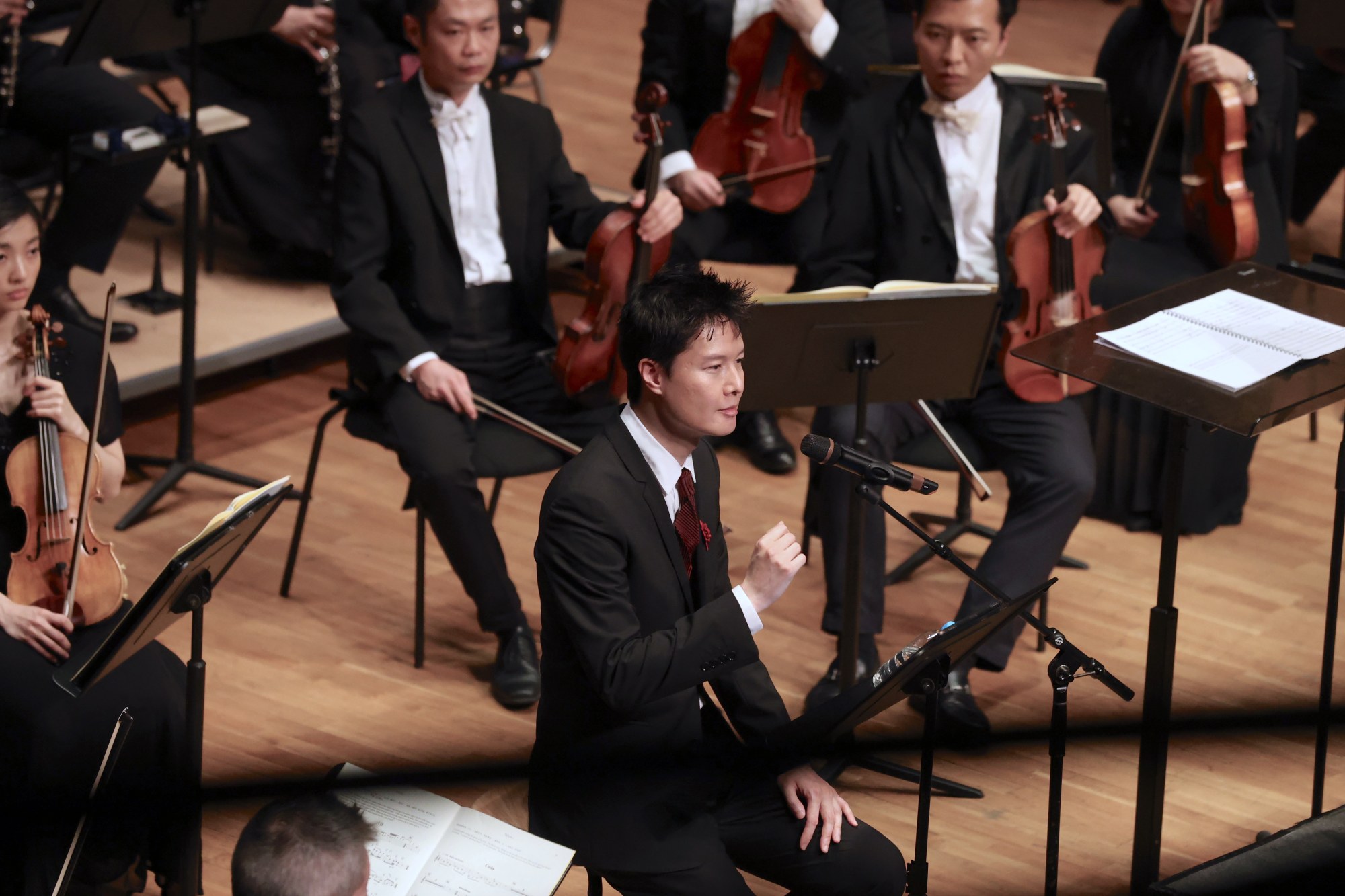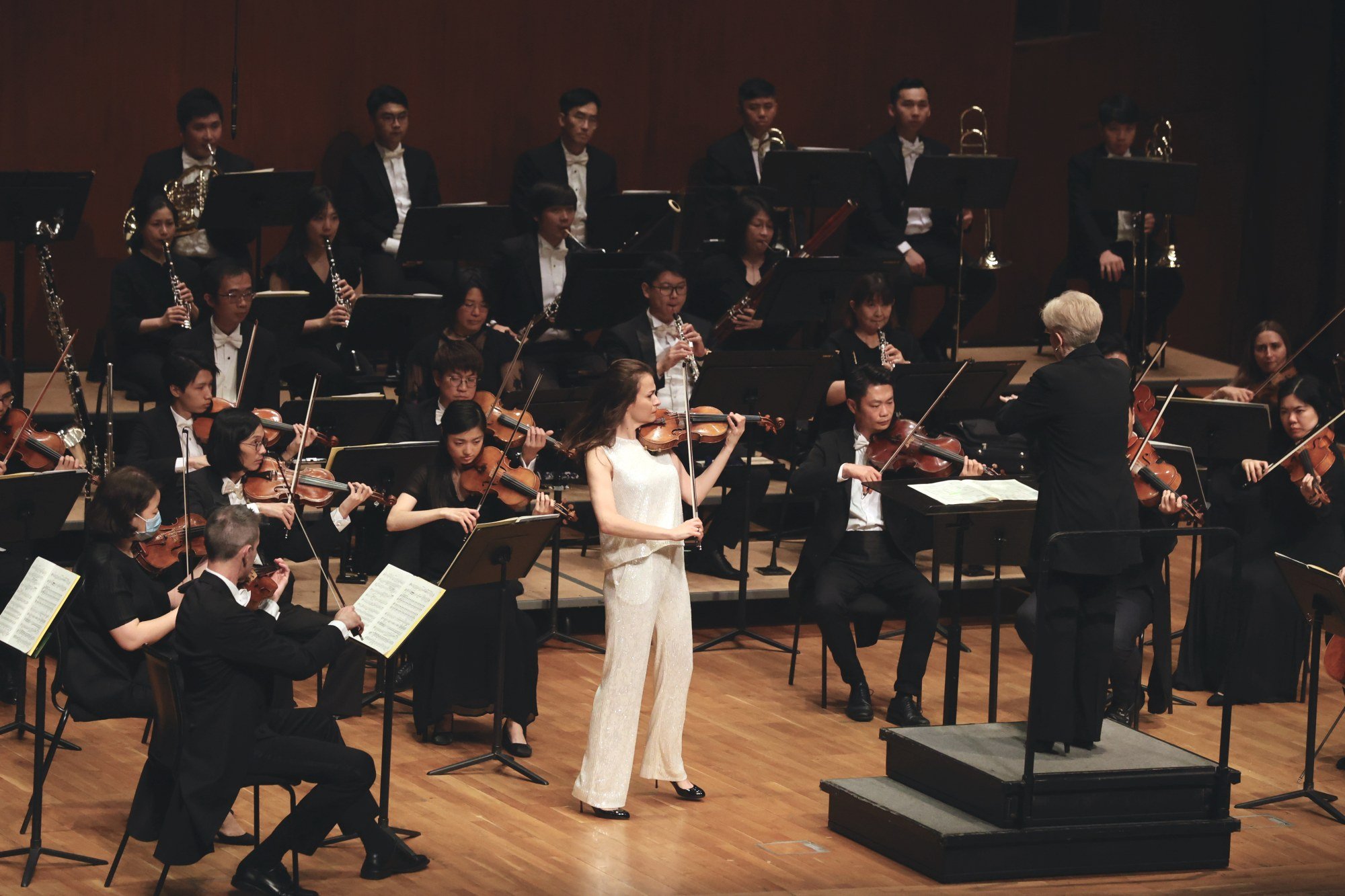
Review | Sibelius concerto tests violinist, Goehr’s Confucius confuses us despite conviction of Hong Kong Sinfonietta’s playing
- Ably supported by the in-form Sinfonietta under Catherine Larsen-Maguire’s baton, violinist Liya Petrova gave a largely controlled reading of Sibelius concerto
- Alexander Goehr’s The Master Said, with readings from Confucius, was well performed in its Asian premiere, but the mood of the music doesn’t fit the words
When asked by his disciple Ji Lu about serving the spirits of the dead, Confucius said, “While you are not able to serve men, how can you serve their spirits?”
For his 2016 work The Master Said, for narrator and chamber orchestra, British composer Alexander Goehr chose this and six other sayings of the Chinese philosopher from James Legge’s English translation of the Analects to be read in between sections of music; the work comprises seven adagios and a final allegro, and is reminiscent of Haydn’s The Seven Last Words of Our Saviour on the Cross.
For Saturday’s Asian premiere, given by the Hong Kong Sinfonietta under guest conductor Catherine Larsen-Maguire, Hong Kong musical theatre and film composer Leon Ko joined them on stage to read the original Chinese sayings in Cantonese.
Ko’s readings were eloquent and emphatic and the Sinfonietta’s playing of the tricky score under Larsen-Maguire impressive; she also conducted the work’s world premiere with the BBC National Orchestra of Wales in 2021.
However, the lack of cohesion between text and music, which never seemed to correspond in imagery, was frustrating.

That said, Goehr’s scores are never dull. The Messiaen-like birdsong interactions and chirping between the solo violin, cello, and oboe stood out, as did the almost rude piano and brass jabs and the clucking woodwind sounds in the final allegro (a response to Confucius’ statement about death); all were played with conviction.
Sadly, though, the clear rift between the music and spoken Confucian wisdom meant “confusion” prevailed.

The concert opener, also an Asian premiere, was British composer Charlotte Bray’s Where Icebergs Dance Away.
The 42-year-old Bray, who lives in Berlin (as does Larsen-Maguire), has undoubtedly made a mark with a wealth of commissioned chamber music, song cycles (one drawing on women’s experiences in the workplace) and recent large-scale symphonic works. However, Where Icebergs Dance Away is a pretty tame example of her capabilities.
At best, it is a satisfying miniature in its short and clear (ABA) ternary form, apparently written as a prequel to a yet-to-be completed work titled Forsaken.
The work opens with Bray’s portrayal of an icy landscape, which rings true in its depiction of the “stable yet fragile” aspects of glaciers; Bray deploys piercing spikiness, and taut pizzicato in the midsection that evokes the image of ice being chipped away.
However, in a quasi recapitulation, the glaciers returned all too soon.
Contemporary-music critic Simon Cummings hit the nail on the head in his blog 5:4 following the world premiere in 2021 when he wrote: “The playfulness at the work’s core feels like so much squandered promise, a flash in the pan that goes nowhere except back to precisely where it just came from.”
If Bray’s piece only hinted at vastness, expansiveness came in spades in Sibelius’ evergreen Violin Concerto in D minor.
A super-icy, hushed shimmer from the in-form Sinfonietta’s strings produced a gorgeous sound carpet for Paris-based Bulgarian violinist Liya Petrova to oscillate between a distant tone profile and a generously voluptuous one on her 1742 “Rovelli” Guarnerius del Gesù instrument.

Hers was a generous performance, as she projected her sound around the auditorium with ample expression and natural movement.
The full gamut of violin technique demanded in the opening allegro was no issue for Petrova. When the movement’s final frenzy felt dangerously close to derailing, a few nerves were frayed but no real harm was done. The adagio was, for the most part, a beauty, with a conclusion that oozed tranquil bliss.
Principal clarinettist Hee-soo Woo’s lyrical phrasing was inspired throughout the Sibelius, as was Petrova’s more raw, gutsy sound in the wonderfully syncopated finale.
Dubbed famously “a polonaise for polar bears” by British musicologist Donald Tovey for its alternating dance metres, the concerto has some tricky double-stopped octaves and up-and-down bow staccato, which sounded slightly forced in the soloist’s hands in an otherwise clean and controlled performance.
Of the two impressive encores that followed, Petrova’s reading of the Sarabande from Bach’s Solo Partita in D minor was heartfelt and a clear indication of her respect for historically informed performances.
Great Violin Concertos: Liya Petrova Plays Sibelius, Hong Kong Sinfonietta, Hong Kong City Hall, Concert Hall. Reviewed: June 1.

